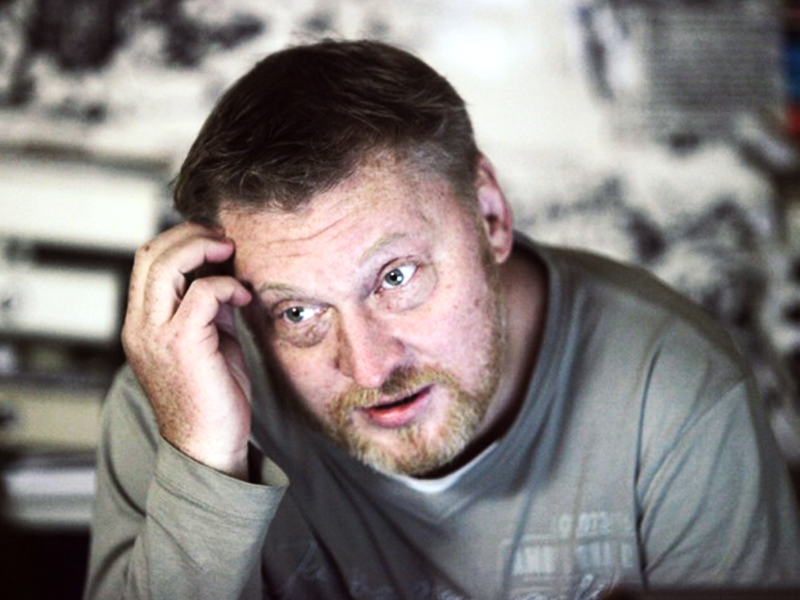
Igor Logvinov: “It is time to strengthen the sound of Belarusian literature in the world”
- What are the main trends today on the Belarusian book market?
- Today’s Belarusian book market is very easy to describe. About 90% is Russian-language publications and about 10% Belarusian-language editions. This ratio has not changed in 25 years.
A section of the publishers present on the market is Belarusian, but the main volume of books is exported from Russia. To see this it is enough to walk into any bookshop – 80% of all products there are books published in Russia.
- What literature is this, classics, translations?
- In my view, books in state bookshops are mainly children’s literature and fiction. There is a small percentage of humanities literature such as philosophy, translations. A lot of textbooks usually published by Belarusian publishing houses that have a monopoly on the market.
- So it turns out that in Belarus it is the Russian publishers who make money. Why is that so?
- Because Belarusian publishers have less resources, financial, translation and marketing possibilities for the development and conquering of the Russian-speaking audience. Plus the general publishing culture, “thanks” to state policy in the publishing business field, is not developing or growing. In publishing, as a rule, work poorly-educated people and people who lack mobility.
- You have noted the lack of education. In what area do publishers lack knowledge?
- In both publishing and humanities in general. It is not enough for a publisher to “know something about books”. He should know his way around the world, literature, philology, science, be mobile, travel. It is no easy task, including economically. I know very few publishers who have a sense of trends, and as they say, are “in”.

- What is the quality needed to have a sense of trends in the publishing business?
- Successful publishers constantly communicate, travel, visit exhibitions. They are immersed in it and are always looking for new knowledge, new niches.
- What, in your opinion, is the common cause of the problems in the publishing business? Perhaps, there is no worthy material, or the problem lies in the mechanism for implementing publishing projects?
- Publishing activity in Belarus is licensed. The publishing business is subject to mandatory registration. The issuing of licenses is regulated by the state. It is necessary to pass an exam and obtain registration to publish books on a specific subject. For example, I have the right to publish on art but I am not allowed to publish educational books. Private publishing houses operate in very restrictive circumstances.
In the Soviet Union the publishing industry was one of the most traditionally stagnant sectors. Book publishing was strictly and ideologically regulated and very slow to develop. Today, everything is changing rapidly – medicine, education. Other speeds of development. While publishing remains at the level of Soviet times when a manuscript had to be prepared for three years, then wait five years for it to be approved, and then think for a long, long time before publishing it. What we are doing today may already be out-dated in just six months. The world has changed.
- To write and publish a book: how much time does this require today?
- It is hard to say. There are books that are written over decades and they remain relevant. There are books written in a week or two, and they too are relevant. A general sense of relevance influences the process, that is, who and what is needed now, what is appropriate and right to publish now. Although I personally do not work in this mode.
We work for pleasure – publish books that I like, that my friends like. We too lack mobility, resources and opportunities. Besides our challenge is simpler too – the Belarusian language literature market is not big. We have the possibility to be slow.
In the contemporary world, more mobile and current models survive.

- What do you mean by “mobile models”?
- These are models that give the opportunity to quickly change strategy, visual range, the writing of the book, change areas and adapt to the market. This applies to all book production.
- E-books included?
- E-books are just one form of the publishing business. In fact, e-books differ little from paper books – they too are information bound under one heading. It’s just different sales technologies and other reading technologies. Today, e-books have between 15 and 20 per cent of the book market. This is quite a significant part on whose development all publishers are counting on. But according to forecasts, e-books won’t overtake paper publications. The share of e-books on the market will grow in the foreseeable future to 35 per cent but not more.
- Is the Logvinay publishing house developing this segment of publishing?
- Yes, we have now begun to offer such products. We have been stripped of our printed publishing activity license. However, our law on printing does not regulate electronic media. That is why we have begun to actively develop this area.
In 2016, Logvinay publishing house will release around 30 to 40 e-books.
- When publishing e-books, which readers do you have in mind?
- The same readers that we had before. Belarus has a small but quite stable Belarusian language literature market. Growth in this market is due to electronic publications. Talking to people, I realised that even those who do not usually read books in Belarusian, would gladly read an electronic edition. Because it is simpler, there is no need to go the shop to buy a book. These “clans” of electronic and paper readers will never agree with each other. These are two completely different markets. In our condition, the situation of our publishing house, for me personally electronic publishing is an outlet. I as a publisher receive an unlimited number of readers that is in no way regulated by the state.
- Thus, your potential readers are all those who have an e-reader or a smartphone...
- No, our readers are all those who love to read. Some 90% of the population has e-readers, smartphones, tablets.

- Do you think publishing e-books will pay off commercially speaking?
- At this time we are not planning commercial success from the sales of e-books. We are planning to expand the market of readers in Belarusian – this is our main task.
- But the status of your organisation is commercial, right?
-Yes, according to our documentation we are a commercial organisation, but it has been three years that we have been working as a cultural platform. We were forbidden from publishing and selling books. We have won back the right to sell books.
- What kind of literature is currently in demand in Belarus? Which authors are popular, best-selling, trendy?
- The circle of successful authors writing in Belarusian is clearly outlined and has not changed in many years. They are Vladimir Arlov, Ales Ryazanov, Valentin Akudovich, Algerd Bakharevich, Artur Klinov, Andrei Khadanovich. They are recognisable and quite successful. It is very difficult for new authors to break into this circle. There are several reasons for this. Firstly, investing in a new author is a big publishing risk. Secondly, the absence of a literary environment that would create competitiveness and motivation for authors has something to do with it. I think this is a very big problem. Unlike many other countries, including Ukraine and Russia, Belarus lacks any programmes that support young authors. In our country, authors experience a vacuum.
- How do technologies influence contemporary literary forms?
- Of course, the Internet has affected the quality of writing, style, themes, form. Although big novels are still written fewer people read them. One successful example is the Ukrainian author Oksana Zabuzhko, who wrote a very popular novel.
Most of the literature is now created in contemporary, short forms, compressed in short narratives. It is now prohibitive to describe a yellow leaf over a page and a half like R. L. Stevenson...
- Now you are working in a fairly rigid framework. If you had the opportunity to realise your projects to the full, to do what you dream about, what would you be doing?
- I would most likely be doing the same thing only more effectively: publish more authors, in larger print runs, take more risks. I would probably go back to publishing in the humanities – history, philosophy, philology.
- In 2015, the Belarusian author Svetlana Alexievich received the Nobel Prize in Literature. How will this event impact the book market?
- This event changed the external environment, and I sensed it. Interest in Belarusian literature grew, in what is happening in cultural life of Belarus. We have received more offers, recommendations for translation and publication in Belarusian. Belarusian authors are getting more invitations.
It is time to convert to a powerful voice, to strengthen the sound of Belarusian literature in the world. It is difficult to make it for all local authors. S. Alexievich has opened such an opportunity for us, and I believe that we are obliged to take advantage of it.




